Dr. Georgios Zontos, MD, PhD, FISHRS, Diplomate of ABHRS
The black market in hair transplantation is a widespread and growing problem that extends far beyond Turkey. In recent years, similar unethical practices have emerged in several European countries, including Greece. Non-authorized personnel frequently perform surgical procedures in clinics that operate under the name of licensed physicians. This case report highlights one such example from Athens, illustrating the medical, aesthetic, and psychological consequences of black market interventions.
Patient History
The patient, a 33-year-old man, presented to our clinic in March 2024 with a history of two previous hair transplant procedures and advanced androgenetic alopecia (Norwood VI).
The first procedure was performed when he was just 18 years old—an age at which surgical intervention was medically unjustified. The outcome was unsuccessful, and the approach used was scientifically unsound.
The second procedure took place four years prior to presentation, performed not by a qualified physician but by unlicensed and untrained assistants—an unfortunately common practice in some clinics in Athens. The responsible doctor either delegated or permitted the procedure to be carried out without proper medical oversight.
Clinical Findings
Physical examination revealed extensive depletion in the right half of the donor area and poor overall growth in the recipient area. The donor area showed evidence of overharvesting, with visible scarring and uneven hair distribution.
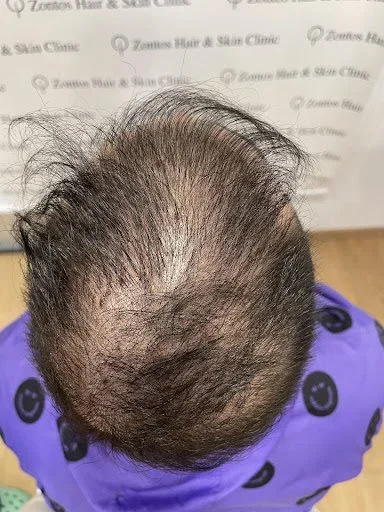
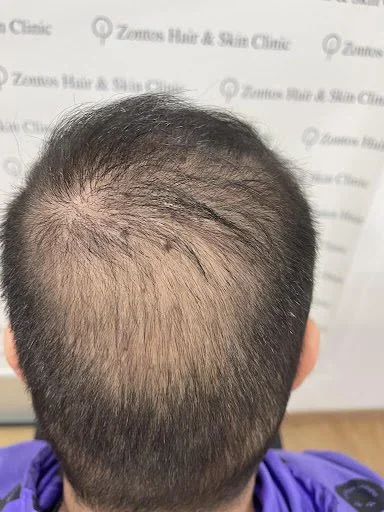

Before correction: The donor and recipient areas are severely depleted and hair density is very low
The patient reported significant psychological distress, including frustration, disappointment, and diminished self-esteem, as a result of the failed procedures.
Also Read: Risks of a Bad Hair Transplant
Treatment Approach
A comprehensive corrective plan was initiated, focusing on both restoration and regeneration of the damaged donor and recipient areas.
Treatment protocol:
- PRP therapy: Administered in both donor and recipient areas to stimulate healing and improve hair caliber.
- Medication: Oral Minoxidil 5 mg and Finasteride 1 mg daily.
No surgical intervention was performed initially; instead, we opted for a regenerative phase to optimize the patient’s scalp condition and evaluate recovery potential.
Results
At six months, clinical photographs showed significant improvement in both the donor and recipient areas. Hair density visibly increased, and the donor area appeared healthier and less depleted. The improvement was attributed not to new follicular growth but primarily to the enhancement of existing hair caliber and increased vitality of miniaturized follicles.
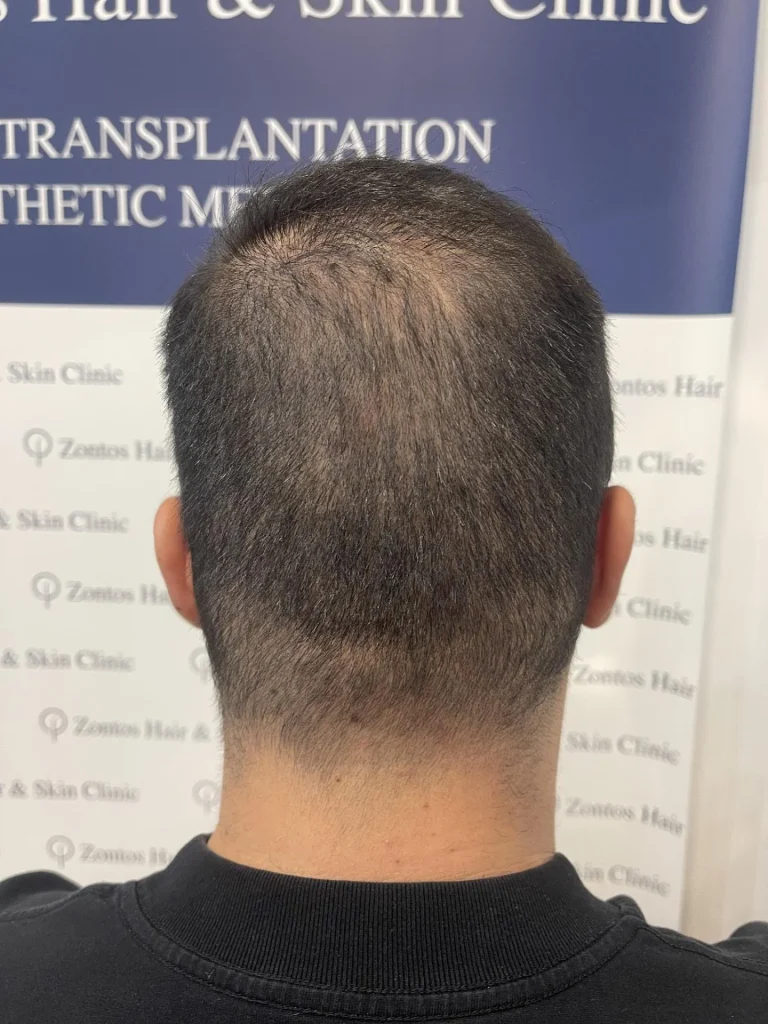
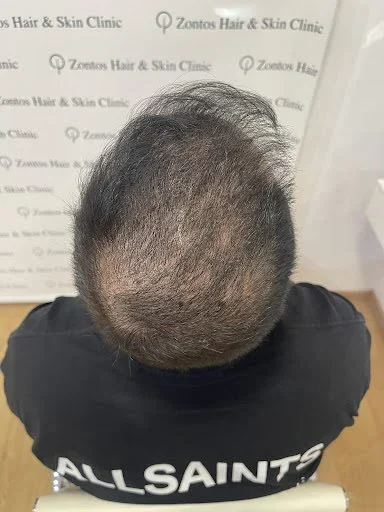
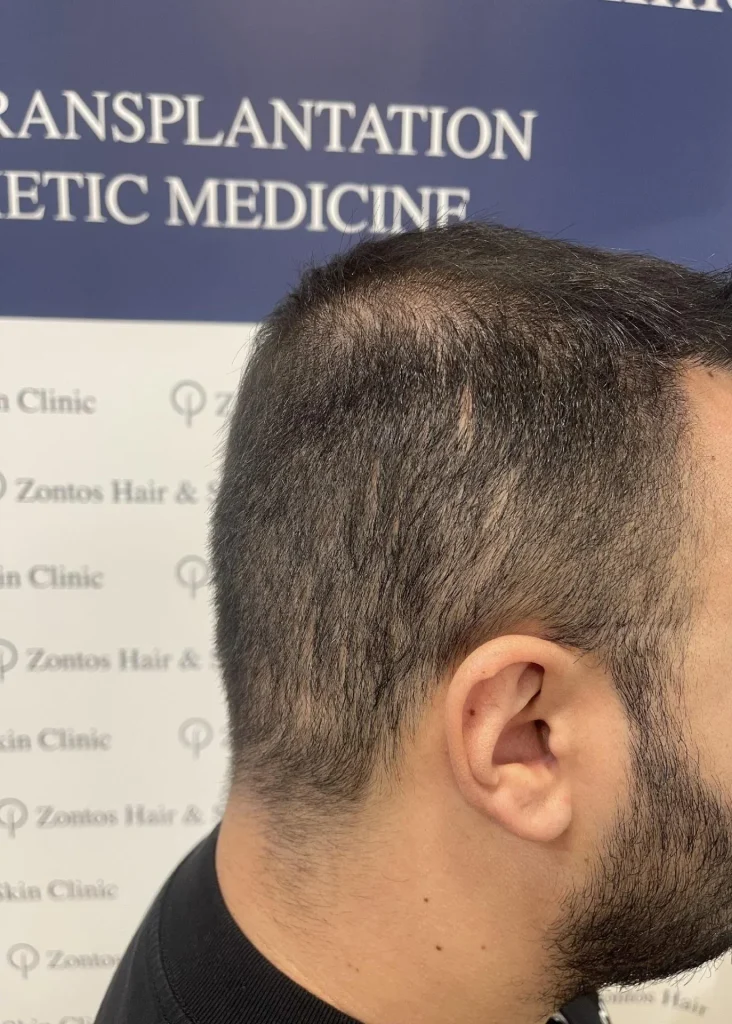
6 Months Result: Donor area shows significant improvement and recipient area has also improved
At one year, the results were even more pronounced. The donor area showed substantial recovery, and the recipient area demonstrated improved density and uniformity. The patient’s satisfaction and psychological well-being improved accordingly.
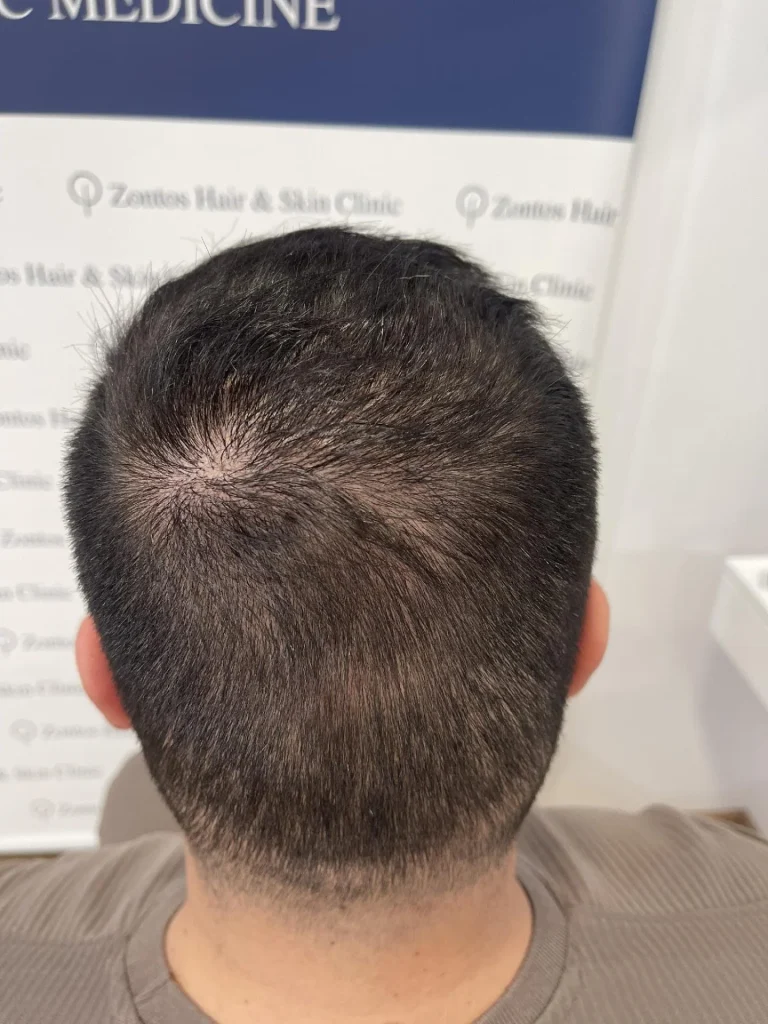
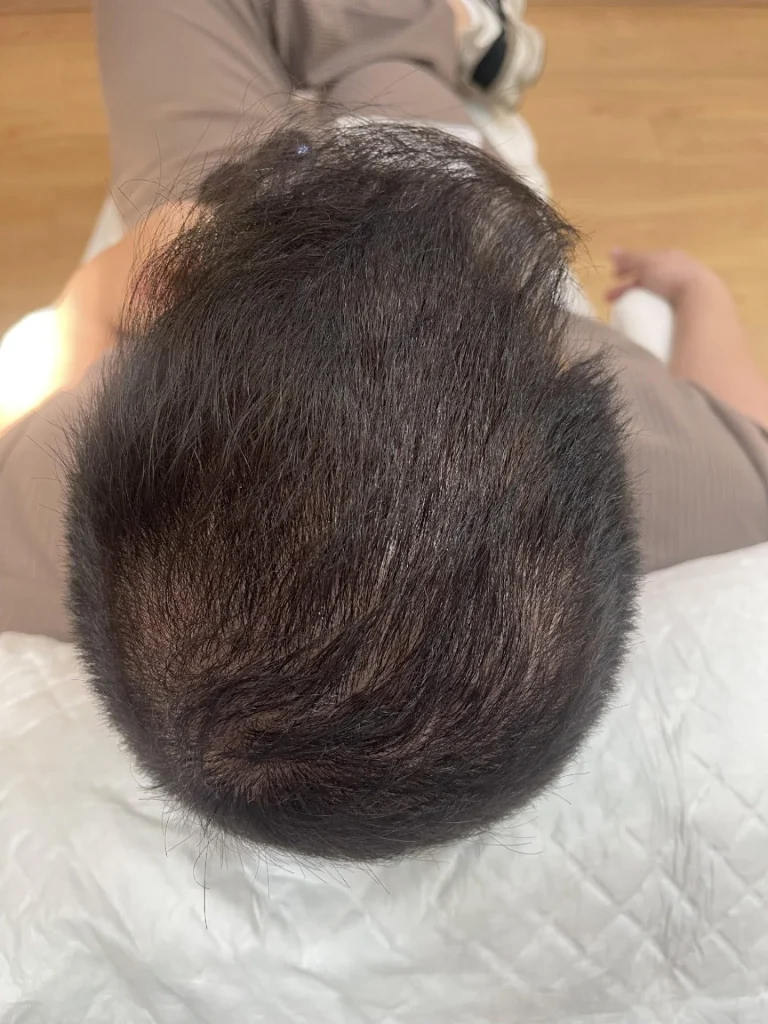
1 Year Result: Both donor and recipient areas show a better hair density and coverage
Discussion
This case underscores the critical importance of ensuring that hair transplant procedures are performed exclusively by trained, licensed physicians. The rise of black-market activity in hair restoration—often hidden behind the façade of established clinics—represents a serious threat to patient safety and the reputation of the specialty.
Patients must be educated to verify who will actually perform their procedure, not merely who owns the clinic. Similarly, stricter regulations and enforcement are required to hold clinics accountable when unqualified individuals perform surgical steps.
The psychosocial impact of failed black-market surgeries can be profound, leading to long-lasting emotional distress. Corrective treatment, while possible, is often complex, costly, and limited by the available donor supply.
Also Read: Revision and Repair of Previous Hair Transplants
Conclusions
This case demonstrates that meaningful recovery is achievable through careful management and regenerative therapy, even after severe black-market damage. Nevertheless, prevention remains the best treatment.
The lesson is clear:
- Patients must choose qualified and authorized practitioners.
- Regulators must ensure strict oversight of medical standards.
- Physicians must remain vigilant and advocate for ethical and patient-centered practice.
The emergence of black-market hair transplantation in Athens serves as a warning that unethical medical practices can appear anywhere—and that protecting our patients requires continuous vigilance and education.